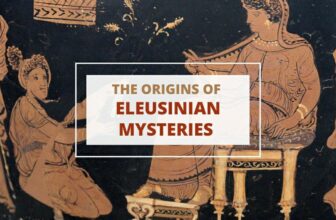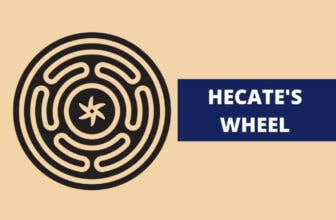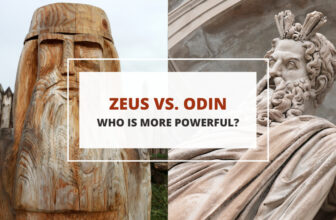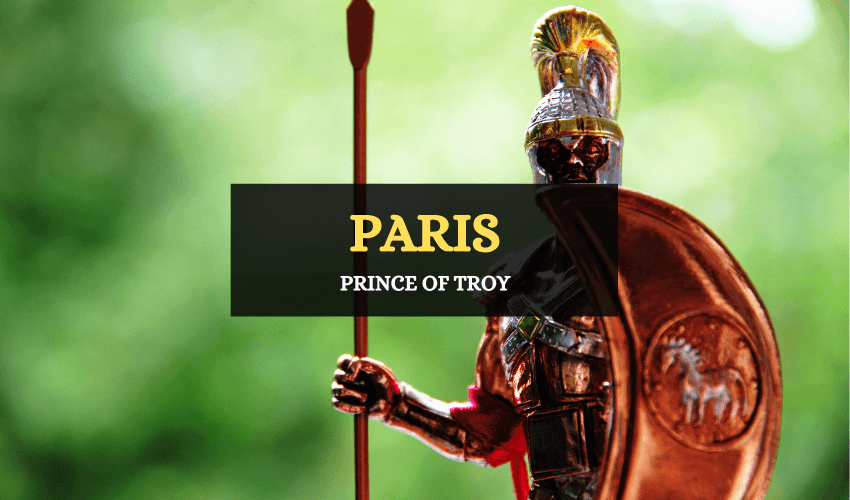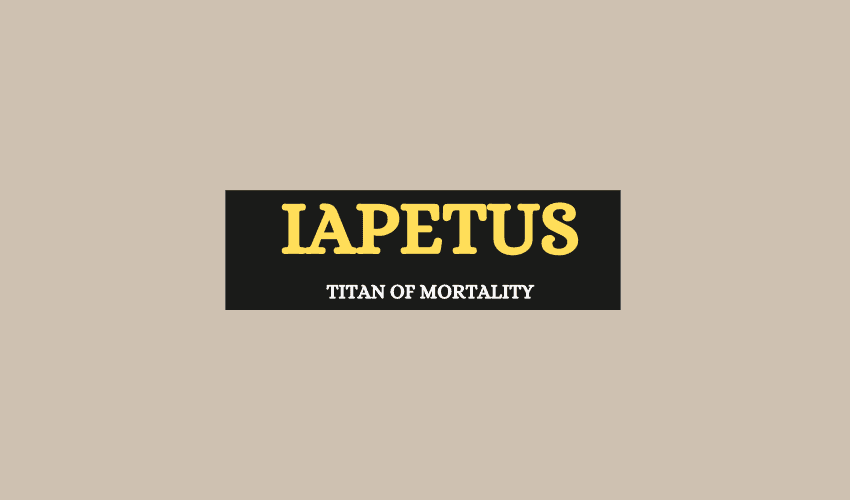
Table of Contents
In Greek mythology, Iapetus was the Titan god of mortality, who belonged to the generation of deities before Zeus and the other Olympians. He was most famous for being the father of four sons who all fought in the Titanomachy.
Although Iapetus was an important deity in Greek mythology, he never featured in his own myths and remained one of the more obscure characters. In this article, we’ll be taking a closer look at his story and his significance as the god of mortality.
Who Was Iapetus?
Born to the primordial deities Uranus (the sky) and Gaia (the Earth), Iapetus was one of 12 children, who were the original Titans.
The Titans (also called the Uranides) were a powerful race that existed before the Olympians. They were said to have been immortal giants who possessed incredible strength as well as knowledge of magic and rituals of old religions. They were also called the Elder Gods and lived atop Mount Othrys.
Iapetus and his siblings were first generation Titans and each one of them had their own sphere of influence. His siblings were:
- Cronus – the King of the Titans and god of the sky
- Crius – god of the constellations
- Coeus – god of the inquisitive mind
- Hyperion – personification of heavenly light
- Oceanus – god of Okeanos, the great earth-encircling river
- Rhea – goddess of fertility, generation and motherhood
- Themis – law and justice
- Tethys – goddess of the primal font of fresh water
- Theia – Titaness of sight
- Mnemosyne – goddess of memory
- Phoebe – goddess of bright intellect
The Titans were just one group of Gaia’s children but she had many more, so Iapetus had a large number of siblings such as the Cyclopes, the Gigantes and the Hecatonchires.
Meaning of the Name Iapetus
Iapetus’ name is derived from the Greek words ‘iapetos’ or ‘japetus’ which means ‘the piercer’. This suggests that he might have been a god of violence. However, he was mostly known as the god of mortality. He was also considered to be the personification of one of the pillars that held apart the earth and the heavens. Iapetus presided over the life-span of mortals but was also called the god of craftsmanship and time, although the reason isn’t exactly clear.
Iapetus in the Golden Age
When Iapetus was born, his father Uranus was the supreme ruler of the cosmos. However, he was a tyrant and his wife Gaia plotted against him. Gaia convinced her children, the Titans, to overthrow their father and although they all agreed, Cronus was the only one of the Titans who was willing to wield the weapon.
Gaia gave Cronus an adamantine sickle and the Titan brothers prepared to ambush their father. When Uranus came down from the heavens to mate with Gaia, the four brothers Iapetus, Hyperion, Crius and Coeus held Uranus down at the four corners of the earth while Cronus castrated him. These brothers represented the four pillars of the cosmos which hold the heaven and earth apart. Iapetus was the pillar of the west, a position that was later taken over by his son Atlas.
Uranus lost most of his power and had to retreat back to the heavens. Cronus then became the supreme deity of the cosmos. Cronus led the Titans into the Golden Age of mythology which was a time of prosperity for the universe. It was during this period that Iapetus made his contributions as a deity.
The Titanomachy
The Golden Age came to an end when Zeus and the Olympians overthrew Cronus, starting a war between the Titans and the Olympians that lasted for ten years. It was known as the Titanomachy and was one of the most famous and biggest events in Greek mythology.
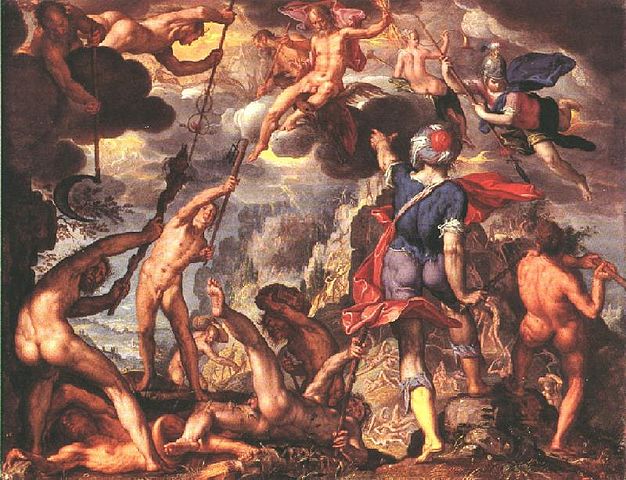
Iapetus played an important role in the Titanomachy, as one of the greatest fighters and most destructive Titans. Unfortunately, there aren’t any surviving texts that detail the events of the Titanomachy so not much is known about it. Some sources say that Zeus and Iapetus fought one-on-one and Zeus was victorious. If so, this could have been a turning point in the war. If true, it highlights the important role that Iapetus held as a Titan.
Zeus and the Olympians won the war and once he had taken up the position of the Supreme ruler of the cosmos, Zeus punished all those who had fought against him. The defeated Titans, Iapetus included, were imprisoned in Tartarus for eternity. In some accounts, Iapetus wasn’t sent to Tartarus but was instead imprisoned beneath Inarmie, the volcanic island.
The Titans in Tartarus were doomed to be there for eternity but according to some ancient source, Zeus eventually granted them clemency and released them.
The Sons of Iapetus
According to Hesiod’s Theogony, Iapetus had four sons (also called Iapetionides) by the Oceanid Clymene. These were Atlas, Epimetheus, Menoetios and Prometheus. All four of them incurred the wrath of Zeus, the god of the sky, and were punished along with their father. While most of the Titans fought against Zeus and the Olympians, there were many who didn’t. Epimetheus and Prometheus decided not to oppose Zeus and were given the role of bringing forth life.
- Atlas was the leader of the Titans in the Titanomachy. After the war ended, Zeus condemned him to hold up the heavens for eternity, replacing the pillar roles of his uncles and father. He was the only Titan that was said to have four arms which meant his physical strength was greater than any other.
- Prometheus, who was known for being a trickster, tried to steal fire from the gods, for which Zeus punished him by chaining him to a rock. Zeus also made sure that an eagle ate his liver continuously.
- Epimetheus, on the other hand, was gifted a woman named Pandora as his wife. It was Pandora who later inadvertently released all the evils into the world.
- Menoetius and Iapetus were imprisoned in Tartarus, the dungeon of suffering and torment in the Underworld where they stayed for eternity.
It was said that Iapetus’ sons were regarded as the ancestors of mankind and that some of the worst qualities of humanity were inherited from them. For instance Prometheus represented crafty scheming, Menoetius represented rash violence, Epimetheus symbolized foolishness and stupidity and Atlas, excessive daring.
Some sources say that Iapetus had another child called Anchiale who was a goddess of the warmth of fire. He may also have had another son, Bouphagos, an Arcadian hero. Bouphagos nursed Iphicles (the brother of the Greek hero Heracles) who was dying. He was later shot by the goddess Artemis when he tried to pursue her.
In Brief
Although Iapetus remains one of the lesser known deities of the Ancient Greek pantheon, he was one of the most powerful deities as a participator in the Titanomachy and as the father of some of the most important figures. He played an important role in shaping the cosmos and the fate of humanity through his sons’ actions.




